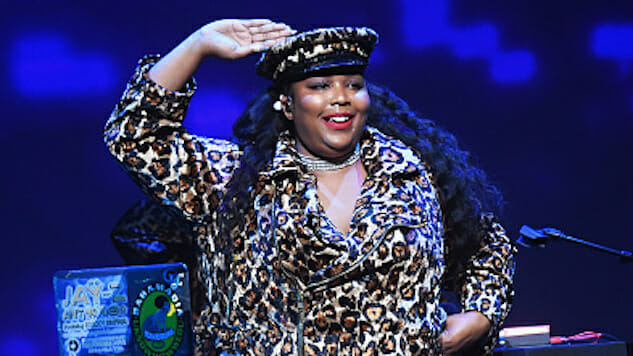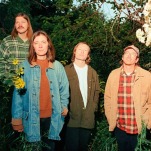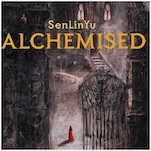Lizzo is America’s Inaugural Bop Star
The rising rapper exudes positivity and markets joy. We need her now more than ever.
Photo by Jamie McCarthy/Getty
First, for the uninitiated, a quick crash course on bops: Loosely derived from “bebop,” the phrase “bop” implies a certain, rarely achievable level of catchiness and danceability in music. A bop is a song so flawless and funky, there’s simply no other word to describe it, except maybe “banger” or “jam,” but those are something else entirely. A bop by any other name would not sound as dope. You just know one when you hear it. The nomenclature is confusing, I know, but maybe if I supply an example of the word used in a sentence, it’ll make sense. Here goes: “Every song Lizzo has ever written is a bop.”
Melissa Jefferson, a.k.a. Lizzo, a rapper and bop connoisseur, has made a career out of writing these kinds of songs—tracks you can work out to, dance to or laugh to—but rarely cry to. Except her songs aren’t just bops. You’ll do plenty of dancing when you listen to them, yes, but that’s not all—Lizzo wants you to feel good, about yourself and the world around you, while doing it. Spreading joy is her first priority. The 30-year-old’s 2016 anthem “Good As Hell,” easily worthy of the bop tag, is like RuPaul sitting in your kitchen, serving you a dose of his signature confidence booster: “If you can’t love yourself, how the hell are you going to love somebody else?” It’s like Michelle Obama grabbing you by the shoulders and saying, “We need to do a better job of putting ourselves higher on our own ‘to do’ list.” “Good As Hell” is about self-love, confidence, joy and what happens when you “dust your shoulders off” and “keep it moving,” even in the face of adversity. As Hanif Abdurraqib put it so eloquently in a recent essay for NPR, “Good As Hell” is “the song that believes in you even when you don’t.” And Lizzo is the pop star—no, the bop star—who believes in you even when you have no faith left in yourself, no dance moves left to try. Take it from the queen herself: “My job is to emote and communicate and bop,” she said in a 2018 interview.
A recent tweet by one of her fans also sums it up nicely:
every @lizzo song makes me feel like a pop star
— ladie goga (@dickersnoodles) January 8, 2019
She seems to be (rightfully) gaining more listeners, and in an ever-changing and ever-diversifying pop landscape, 2019 could be the year she breaks onto the charts. But Jefferson has been one to watch for a while now. She grew up in Houston and then moved to Minneapolis in 2011 where she played a part in several DIY hip-hop groups like The Chalice, GRRRL PRTY and The Clerb. She released her debut solo album, Lizzobangers, in 2013 to critical acclaim (Time even named her an artist to watch in 2014), then another record, Big Grrrl Small World, arrived in late 2015. She was on a roll.
But since that LP, Lizzo has taken on a new tactic for releasing her music, extending her upward spiral and racking up even more well-deserved attention. In the years since Big Grrrl, she’s released nine singles and an EP—definitely enough to constitute an album. But Lizzo doesn’t need to release an album (though we hope, and speculate, that she will very soon). She doesn’t need to conform to music marketing timelines, however scattered they may be these days, because what we need from Lizzo we can get in small doses: encouragement and positivity, two scarcely recognizable tones on the pop charts. Lizzo isn’t a rule-follower, not in terms of industry standards nor in terms of the content of her music. And that’s why we need her—she’s a rule changer.
Lizzo’s most recent single, “Juice” dropped on Jan. 4, just as publicists and writers were moseying back to their desks after the holiday. It was just the boost we needed to start the year and arrived with a wonderfully campy music video in which Lizzo posed as various characters inhabiting the late-night TV circuit—an infomercial saleswoman, a talk-show guest, a workout video instructor. As ever, Lizzo is open, unapologetic and sexy: “No, I’m not a snack at all / Look, baby, I’m the whole damn meal.” She’s a rapper by trade, but “Juice” is a pop song, a delicious snack bursting with colorful synth and groovy beats that, in a way, mirrors Prince’s lustiest products. “Gotta blame it on my juice, baby,” she sings. “Ain’t my fault that I’m out here makin’ news / I’m the pudding in the proof.”
“Juice” is plenty sensuous, but its predecessor, “Boys,” one of last summer’s flirtiest jams and one of our favorite songs of 2018, is down-right demanding. In Lizzo’s songs, the man is the object of the woman’s gaze, for a change. “Baby, I don’t need you,” she croons. “I just wanna freak you.” What may have once in another era of music been called vulgar is now delightfully raunchy, seductive and delicious. “I like big boys, itty bitty boys / Mississippi boys, inner city boys.” In another recent single, “Fitness” Lizzo recalls Fergie’s 2006 hit “Fergalicious”—she’s “working on my fitness,” “sweating” and “doing calisthenics.” But Lizzo isn’t working out to please anyone, especially not a man: “Ooh, I know you want it like Ooh / but I don’t do this for you.” In Lizzo’s music, the female body—no matter what it looks like—is a symbol of power, but never the sole thing that defines one’s self-worth.
Women of color (and women in general) aren’t always taken seriously when they rap and sing about such salacious things as sex and bodies, but Lizzo isn’t backing down. And she has the go-ahead from her foremothers: Missy Elliott recently responded to her in a tweet, writing “You are so talented with so much sauce! And such a good spirited person from when I met you. I’m humbly grateful.” Lizzo could definitely be the next Missy, but perhaps there’s a better way of saying it: Lizzo is the first Lizzo. With so many artists dwelling on the ever-present chaos and dread that hangs over our country, hers is the music that will empower us in 2019.
And if we could secure even a drop of her magical “Juice,” our 2019 might be as fruitful as hers is sure to be. Don’t take it from me—Lizzo is her own best advocate:
I don’t know who needs to hear this but:
Stream “Juice” by Lizzo
— |L I Z Z O| (@lizzo) January 10, 2019
Watch Lizzo perform in the Daytrotter studios circa 2016:







































